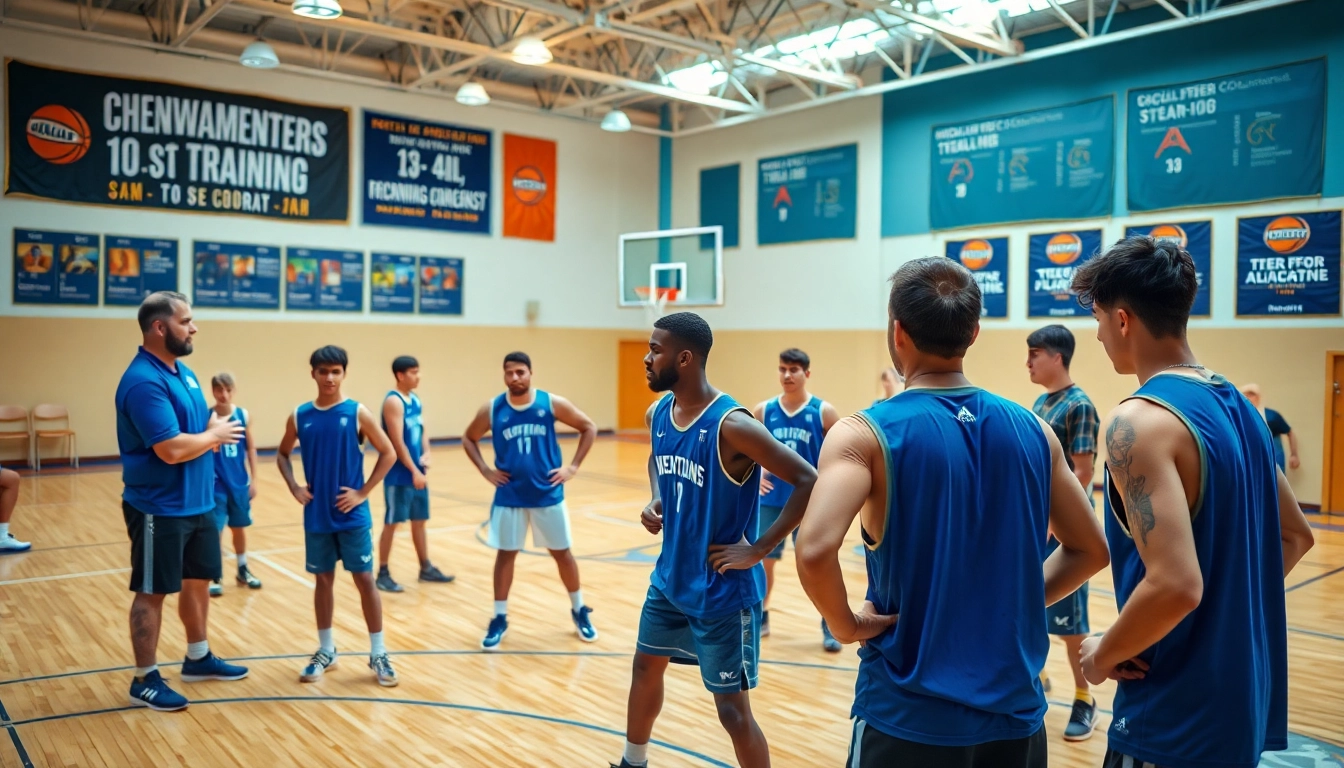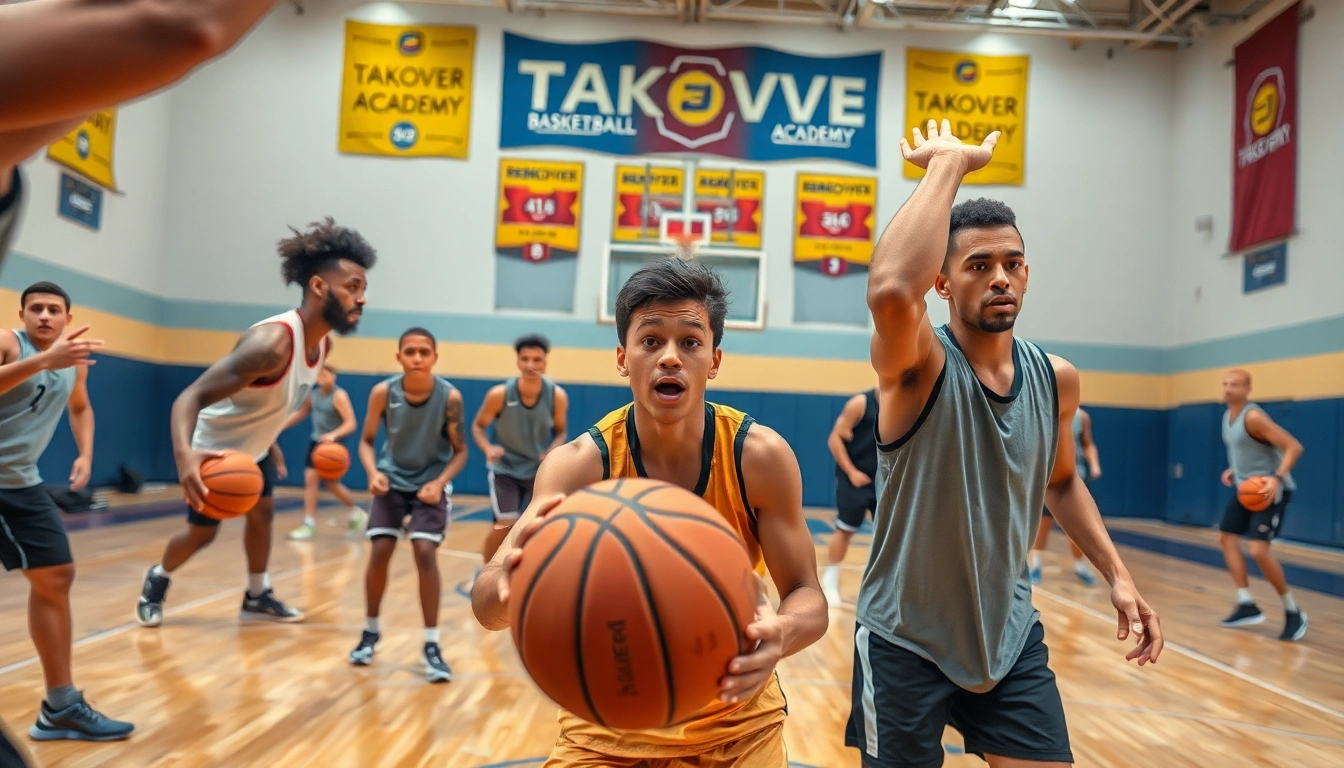Understanding Basketball Training Programs
Basketball is one of the most popular sports around the globe, enjoyed by young athletes and seasoned professionals alike. For those looking to elevate their skills on the court, engaging in focused training can make all the difference. Basketball training programs near me provide an array of opportunities designed to achieve technical skill enhancement, physical conditioning, and comprehension of game strategies. But what does a comprehensive basketball training program encompass, and how can it benefit you or your child?
Importance of Local Basketball Training Programs Near Me
Local basketball training programs offer the advantage of convenience, accessibility, and personalized instructions. In many cases, athletes can train with experienced coaches who tailor lessons to match individual needs. This close proximity allows for consistent engagement and practice, key ingredients in skill development. Engaging in a local program helps athletes build connections within their community while staying committed to their basketball journey.
Types of Training Available
Most basketball training programs offer a variety of training types, catering to different skill levels and ages. Here are some common types of training available:
- Skill Development Clinics: These sessions focus on fundamental skills such as shooting, dribbling, and passing. They are suitable for players at all levels.
- Strength and Conditioning: These programs aim to enhance an athlete’s physical capabilities through weight training, agility drills, and conditioning exercises relevant to basketball performance.
- Team Camps: Team camps provide opportunities for players to work together, focusing on communication, team strategies, and chemistry on the court.
- Individual or Private Lessons: One-on-one sessions that allow for personalized training tailored to the specific goals of the athlete.
Who Can Benefit from Basketball Training?
Basketball training programs can benefit a wide range of individuals:
- Young Players: Beginner youth players can hone basic skills, understanding the mechanics of the game.
- High School Athletes: For those looking to excel in high school and potentially secure scholarships, focused training is key.
- Adult Players: Recreational adult players can benefit from enhancing their skills for leisure or competitive play.
- Coaches: Coaches can enroll in specialty programs to learn new approaches and improve their coaching techniques.
Finding the Right Basketball Training Facility
Choosing the right basketball training facility can significantly impact your training experience. The ideal program should align with your personal goals and learning style.
Key Factors to Consider When Choosing
When evaluating basketball training facilities, consider the following factors:
- Coaching Staff: Research the qualifications and experience of the coaching staff. Well-trained coaches with a history of developing players can enhance your training experience.
- Location and Accessibility: Choose a facility that is conveniently located to ensure regular attendance without excessive travel time.
- Facilities and Equipment: Evaluate the quality of the courts and training equipment available. Modern facilities often offer better training experiences.
- Program Structure: Understand the layout of the training programs, including group sizes, duration of sessions, and focus areas.
Comparing Programs and Coaches
When comparing different basketball training programs, it’s crucial to assess the coaching approach and program outcomes. Look for facilities that document their success, player development stories, and testimonials. Engaging with current or former participants can provide insights into what to expect.
Reading Reviews and Testimonials
Before committing to a program, spend time reading reviews and testimonials. This will give potential enrollees a better understanding of the facility’s reputation. Reliable feedback can often provide a broader perspective on the effectiveness of a program.
What to Expect from a Training Program
Basketball training programs vary in structure, but there are commonalities across them all. Understanding what to expect can help you prepare for what lies ahead.
Typical Training Sessions Overview
Most training sessions will begin with warm-ups, which might include dynamic stretching or light drills. Following warm-ups, participants typically engage in skill drills, small-sided games, or situational scenarios designed to enhance tactical understanding. Sessions usually conclude with cool-downs and discussions about performance expectations.
Skill Development vs. Physical Conditioning
While skill development is crucial, physical conditioning also plays a vital role in an athlete’s overall performance. Training may incorporate strength and conditioning regimens to ensure that athletes can perform at optimal speed, agility, and endurance levels during games.
Measuring Progress and Success
Tracking progress is essential for motivation and improvement. Coaches should regularly assess skill levels, physical improvements, and game performance. Players might also keep performance journals that detail their development across various metrics over time.
Cost Analysis of Basketball Training Programs Near Me
Understanding the cost of basketball training programs is crucial for budgeting appropriately. Costs can vary widely based on the facility, program length, and whether included resources provide added value.
Comparative Costs Across Different Programs
Costs often correlate with the type of training. Here is a breakdown of typical expenses one might encounter:
- Group Training Sessions: These can range from $10-$30 per session, depending on location and length of the session.
- Private Lessons: Individual coaching sessions may range from $50-$150 based on the trainer’s credentials and experience.
- Camps: Basketball camps can vary significantly in costs, generally starting at $150 for a week-long session.
How to Budget for Basketball Training
Creating a budget can encompass costs related to travel, training sessions, equipment, and additional fees for tournaments. Planning ahead ensures that finances don’t hinder participation in essential training programs.
Finding Scholarships and Financial Assistance
Some organizations offer scholarships or financial aid for promising athletes. Research local sports clubs, community foundations, or non-profits that focus on youth sports. Often, these organizations aim to promote access to sports training for all regardless of financial background.
Maximizing Your Experience in Basketball Training
Participating in a basketball training program is an investment in your athletic future. Here’s how to make the most out of your training experience.
Setting Goals for Training
Set specific, measurable goals for your training. Whether it’s improving your shooting percentage or enhancing your stamina, having targeted objectives can help maintain focus and motivation throughout the program.
Complementary Training Methods
Consider incorporating complementary training methods such as yoga for flexibility, strength training for power, or nutrition consultations for overall health. This holistic approach can bolster the specific skills gained through basketball training.
Maintaining Consistency and Motivation
Consistency is key in any training regimen. Make a dedicated schedule and prioritize your sessions. To stay motivated, find training partners, join community events, and participate in competitions to keep the excitement alive.


